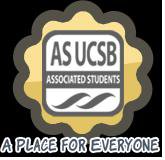Tim Fucci
AS Beat Reporter
Associated Students Elections Code stipulations that prevent current elected officials from using their title to endorse other candidates and restrictions on campaigning have prompted debate over the legality of such rules and will most likely be revised by the Legislative Council in the Feb. 22 meeting.
Red flags concerning the elections rules were raised after AS President Harrison Weber vetoed the elections code citing that the rules could inflict legal harm against the Association for violating First Amendment rights to free speech.
“To allow the bill and Elections Code to remain as is leaves the Association- and myself personally, as Chief Executive Office- open to possible legal challenge for suppression of First Amendment rights to free speech,” Weber wrote in his veto rationale.
Weber and opponents to the elections rules argued in the Feb. 15 Legislative Council meeting that the AS Elections Code was inconsistent with state and federal elections procedures and that the University of California Santa Barbara’s elections rules should be more in tune with the elections codes of other UCs. Currently, there is no uniformity amongst UCs concerning elections rules, but when compared to other universities in the system, UCSB is the only UC that restricts endorsements from elected officials.
With each member of the Legislative Council voting along party lines, in an 11-to-9 decision, the council accepted the President’s veto and then ran the remainder of the meeting in a breakout session in which the council scrutinized the elections regulations line-by-line. AS Director Marisela Marquez said Friday that she believed that the Legislative Council would revise the elections code during the Feb. 22 meeting, but she said she was unsure of the magnitude of these changes.
According to Marquez, UC legal counsel has reviewed UCSB’s elections procedures and said that the rules are legal so long as they serve an educational purpose and are applicable to every student.
Never before has the Associated Students of UCSB or its President been sued over elections rules. Furthermore, a decision made by the Ninth Circuit Court of Appeals entitled Flint v. Dennison exempts university elections from following the constitution so long as the rules serve a distinct purpose.
Robin Unander, an attorney with the AS Legal Resource Center who provided legal advice to Weber, said the Association is indeed vulnerable to legal recourse, but the only possible scenario she envisioned was a student taking action against the Association. Unander said it would be difficult to predict how the case would play out.
But as director of the Association, Marquez said that it is her duty to protect students against legal repercussions resulting from the legal code.
“I think the fear is that our students that are in a decision making power, could personally be liable if someone sued them,” Marquez said. “As long as students are operating under their power and their responsibility, the university and AS would protect them and have a defense for them.”
If the Legislative Council can reach a solution on the election rules by the end of the Feb. 22 meeting, the changes will go in effect for this year’s AS elections. However, Weber has said he would continue to veto an elections bill he believed violated the First Amendment.

















